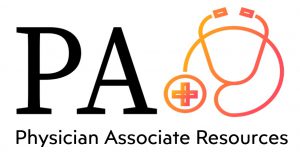The science of learning: study techniques that help us learn more effectively
 When I started the Physician Associate Studies Programme one of the first things that I remember noticing was how intense the course was and the sheer volume of knowledge that we were expected to learn in a short period of time.
When I started the Physician Associate Studies Programme one of the first things that I remember noticing was how intense the course was and the sheer volume of knowledge that we were expected to learn in a short period of time.
Now that I am involved in teaching Physician Associate students as a qualified PA, I have looked a little deeper into the science of learning and what evidence-based methods are out there to help commit learning to long-term memory. Many of us I am sure have ‘crammed’ just before an exam and managed to pass based on pulling information from our short-term memory but how does that help us 6 months down the line when the information has disappeared in a puff of smoke?
The following methods are just some ways that have been shown to improve a student’s ability to learn effectively:
- Retrieval Practice – This strategy involves putting your notes away and trying to actively recall a concept. You could explain something out loud as if you were teaching someone else or you could draw or sketch or make notes on what you can remember without peeking at your previous notes. Completing exam style questions is also an excellent to way to practice this too as it also helps to highlight areas that you need to work on. Doing this regularly trains the brain to commit this information to long term memory.
- Spaced Learning – This method looks at regularly revisiting material you have covered over the course. Make a regular study schedule and take time to look at material you covered a week ago, a month ago and 3 months ago for example! This means that you are not just reviewing concepts at the time they are taught. This challenges our brain to draw information out from memory. Evidence has shown that even unsuccessful attempts at retrieving information enhances learning.
- Spaced Repetitions – This concept combines the benefits of the first two strategies mentioned and evidence has shown that reviewing information soon after being introduced to it but then expanding the time slowly before reviewing again leads to better learning than just recapping the same information every few days!
- Elaboration – This technique suggests going beyond the minimum amount of information required to think about the how’s and why’s of an idea. This also means making deeper connections between concepts such as linking hypotension during septic shock to vasodilation and how this than causes an AKI through poor renal perfusion. Linking ideas creates a more thorough understanding and thus more effective learning.
- Concrete examples – The benefit of seeing concrete examples of the conditions that you cover on the matrix is without question an excellent way to commit learning to long term memory and to be able to retrieve this information successfully. This turns abstract ideas into concrete examples that are easier for our brains to visualise. When you are on primary or secondary care placements make sure you write up the cases that you see and put them in your portfolio to refer to later.
Research into the science of learning is vast and I hope these few examples are useful to think about how you are studying and ways you can make this more effective for the long run. Remember you are training to be a medical generalist and you will need to draw upon everything you have learned when you qualify, so make the studying that you do now counts!
Below are a couple of sources of useful information about learning and evidence-based study techniques, check them out if you are interested!

